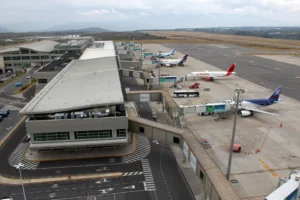Iran Considers Closure of the Strait of Hormuz Following U.S. Airstrikes
In a significant reaction to recent U.S. airstrikes targeting Iranian nuclear developments, Iran’s parliament has backed a proposal to potentially shut down the Strait of Hormuz, a crucial maritime route for global oil transit, reports 24brussels.
As reported by the state-affiliated broadcaster Press TV, the Iranian legislature has reached a consensus regarding this crucial measure. However, the definitive decision will ultimately be determined by Iran’s Supreme National Security Council. This strait is not only a vital link between Iran and Oman but also serves as a key conduit for oil exports from Persian Gulf nations to international markets.
The call to close the strait must be seen in the context of the recent U.S. military actions, which involved targeted strikes on Iran’s nuclear facilities located in Fordo, Natanz, and Isfahan. These attacks have heightened tensions in an already volatile region, prompting Iranian lawmakers to react strongly to safeguard national interests.
The possible closure of the Strait of Hormuz could lead to significant disruptions in oil shipments, impacting global markets heavily reliant on Persian Gulf oil. This chokepoint handles a substantial portion of the world’s oil supply, and any halt in its operation would create ripples felt far beyond the region.
Iran’s legislative body is signaling its readiness to take drastic measures in response to foreign military actions, reinforcing the nation’s commitment to its nuclear program and its strategic interests. The escalating situation necessitates close monitoring, as further developments could destabilize the wider Middle East and have profound implications for global energy security.
In light of the ongoing tensions, it remains to be seen how the Iranian leadership will navigate this complex geopolitical landscape. The international community is keenly observing Iran’s next moves, as any decision regarding the Strait of Hormuz will undoubtedly be met with considerable global attention and potential backlash.
The political ramifications of this situation extend beyond mere military confrontations, involving economic, social, and political dimensions that are crucial for understanding the future of U.S.-Iran relations in a rapidly changing global context.
As these events unfold, the focus remains on diplomatic efforts to de-escalate tensions and prevent further conflict, emphasizing the need for constructive dialogue and engagement among all parties involved.










